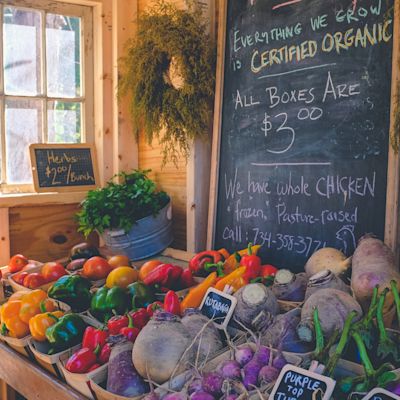We put together this quick guide to help you use less when eating on the go.
More Americans are eating “away-from-home” than ever before - and generating a historic amount of garbage. Today we consume more than twice as much as our relatives did only 50 years ago. In the US, this means we produce upwards of 500 billion pounds of garbage every year that’s trucked to one of our 10,000 landfills.
But as we all become increasingly aware of our garbage problem, we’re searching for ways to shift our habits to have an impact. Leaders like Bea Johnson and Lauren Singer are helping others live a zero waste lifestyle.
We know The Farm Project community cares about waste, so we put together this quick guide to help you use less when eating on the go.
Communicate
When starting any new relationship, as we are with zero waste, communication is key. Sharing your priorities with your server up front will make it easier to avoid common disposables like straws, plastic utensils, coffee sleeves plastic bags and condiment packets, among others. Don’t be shy!
Bring your own
As long as it’s clean, most restaurants are receptive to bringing your own cup or container. Here’s a great resource for how to source your zero waste containers for zero dollars! And if you live in Portland, presumably the mecca of Zero Waste, check out this pilot program for reusable take-out containers.
Share a cup
The sharing economy is moving into the coffee cup industry. In the UK, fewer than 1% of disposable coffee cups are recycled each year due to the plastic lining. So CupClub is now providing Londoners with a reusable cup service that aims to reduce waste by 40%. Some smaller coffee shops are encouraging coffee mug sharing, ask yours next time you grab a cup!
Compostables
While there’s no substitute for bringing your own reusable goods, if you do need disposable cups, plates, containers or flatware, choosing compostable, plant-based alternatives are a good option. Here’s a helpful guide to help you navigate the many options on the market. Just make sure to dispose of them properly.
Have a Zero Waste tip? Email us at info@thefarmproject.com, we’re learning too!
Read Next


